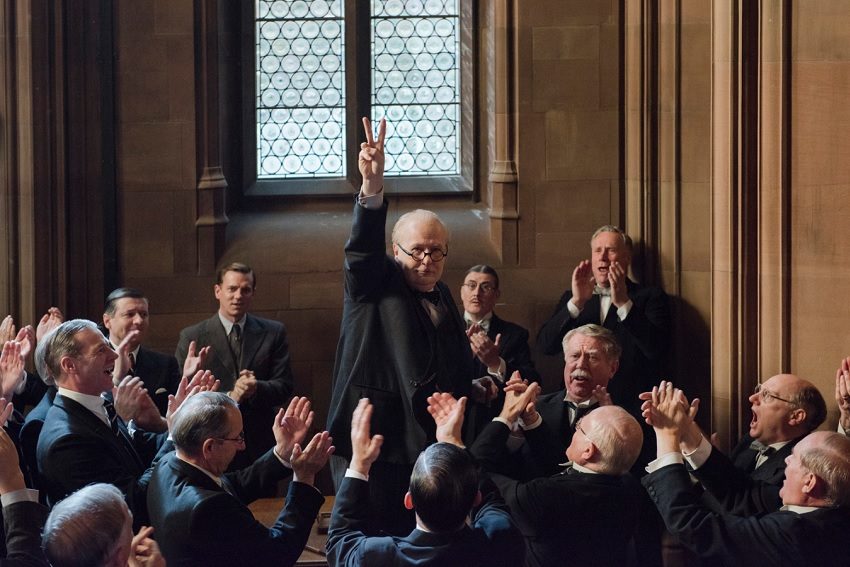Film Review: Darkest Hour

Gary Oldman’s heavily-made-up and awards-friendly turn as Winston Churchill in Darkest Hour, the latest prestige effort from English director Joe Wright, is quite something.
Yet this historical semi-biopic has already been a little overrated by audiences who don’t mind the quotation/sound-bite-rich script by Anthony McCarten, a certain blurring and compression of the facts and a few too many big, even bombastic speeches. Then again, this is Winston Churchill we’re talking about, and he did dearly love speechifying, as also demonstrated in the less grand but perfectly fine Churchill just last year where Brian Cox had a go at the endlessly-played part.
Cox’s transformation was mostly physical, as he was weighed down by a fat-suit, but Oldman spent some 200 hours in the make-up chair as intricate prosthetics were applied to make him look more like the, it must be said, somewhat piggy-faced Winston. The result? In some shots the effect is remarkable and he looks startlingly like Winnie, while in others he looks like Gary Oldman sticking out his double-chin and trying to win a Golden Globe. Which he did, and that’s just the beginning.
In May 1940, with the Nazi invasions of Belgium and the Netherlands a certainty, the British Labour Party demands the resignation of the “weak” Prime Minister Neville Chamberlain (Ronald Pickup), and his second choice as a replacement is Winston, the First Lord of the Admiralty and supposedly the only man both sides of Parliament will support. Winston is seen at home and at his most unconscionably monstrous early on, and this upsets Elizabeth Layton (Lily James), his latest secretary in a long line, which leads to a telling-off by his long-suffering wife Clemmie (Kristin Scott Thomas) and the chance for James to shine in one of several somewhat contrived roles.
As unelected PM, Winston meets with King George VI, who’s played with great restraint and pinched poise by Ben Mendelsohn, using a careful, quietly clipped way of talking that naturally reminds us of The King’s Speech. Skullduggery promptly commences (despite the doomy threat of Nazi invasion) because the King wants his friend, Viscount Halifax (Stephen Dillane), to be Prime Minister, and Dillane rises to the challenge of being heard over Oldman as the sneering villain of the piece.
Winston also has a bad reputation for what went on during the Gallipoli Campaign and other events. When he refuses to negotiate with Germany it makes him more hated by a fair few, even as the allies are heard to be losing the Battle of France and the events at Calais and Dunkirk grow increasingly grave.
Naturally director Wright has assembled a plum cast here, with many familiar faces and lots of grim English pluck, and yet this is mostly all about Oldman, as his Winston swaggers about smoky interiors, rants and raves, knocks off vulgar toilet jokes, accidentally gets his V-sign around the wrong way, drinks heartily from morning till night, smokes apparently £18,000 worth of cigars, sometimes shows his soft side to the point of blubbering and makes a meal of some legendary speeches. It’s a remarkable performance, any way you look at it, and one of the unreliable Oldman’s best.
Rated PG. Darkest Hour is in cinemas now.